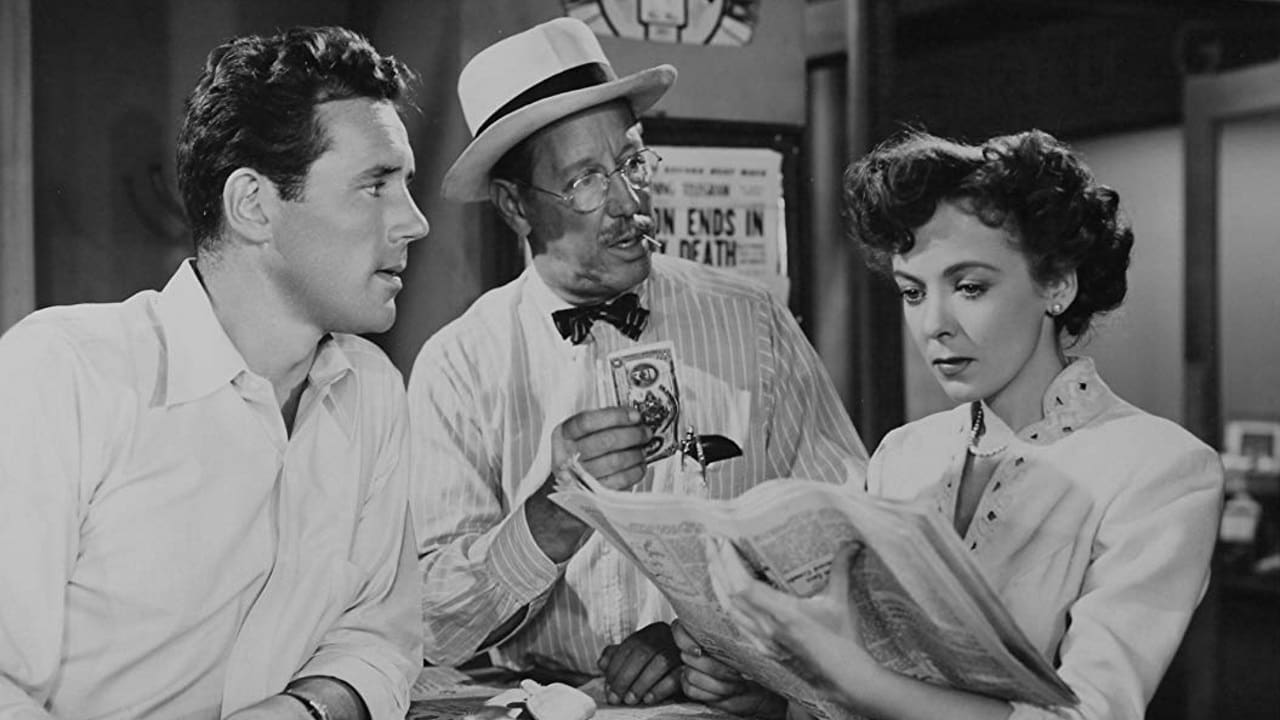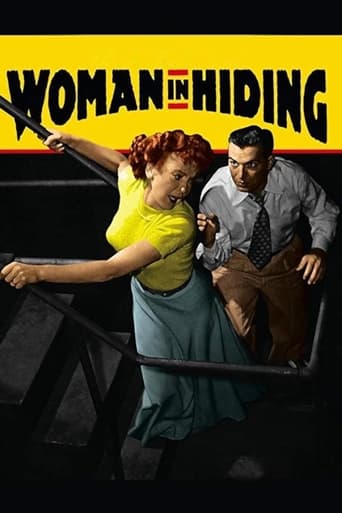Manthast
Absolutely amazing
Comwayon
A Disappointing Continuation
Dana
An old-fashioned movie made with new-fashioned finesse.
Walter Sloane
Mostly, the movie is committed to the value of a good time.
edwagreen
Ida Lupino again proved what a competent actress she was in this taut 1949 thriller. She was always at her best when she played emotionally wrought women, and as always, she delivered quite well here.The problem here was with the performance of Stephen McNally. He just wasn't menacing enough. He did have that evil eye, but there was little force by him to back up the nature of his character.So much can happen in one day-Lupino leaving for N.Y. only to be interrupted by her father's sudden death. McNally proposing to her on that very day and when they do wed, the appearance of another woman at his cottage-nicely played by Peggy Dow-lets the plot unravels regarding whether or not Lupino's father, who let McNally manage the firm, despite disliking him died accidentally or was pushed.Meeting up with Howard Duff during her attempt to flee is interesting as Duff unwittingly plays into the hands of McNally's character.The ending scene is exciting and the picture is basically Lupino's performance as a victimized woman who will have to get people to believe what is actually happening.
Neil Doyle
As in almost all of these suspenseful melodramas from the '50s, there are certain lapses in logic throughout WOMAN IN HIDING that had me shaking my head in disbelief. Some of the choices that Lupino makes as the vulnerable heroine are too foolhardy to be believable, but once the plot starts rolling there's no turning away.A particularly bad choice is the scene where she casually gets into a car with Peggy Dow, a scorned woman who is leading her into a trap which brings her right back to the man (Stephen McNally) she is hiding from at a dark and sinister mill.But despite such motivational flaws, the film manages to be a better than average melodrama with all three leads--Ida Lupino, Howard Duff and Stephen McNally--giving expert performances.Most effective aspect is the tight pace of the story and the film noir look of the B&W photography. Ida Lupino gives another one of her tense performances as she gets caught up in the excessive manipulations of McNally who is intent on killing her to inherit her father's mill. Howard Duff tries to help once he understands her fears and from that point on the story leaps forward to a satisfying ending involving a trick later used to good effect in Joan Crawford's "Sudden Fear." Not a great film, but a satisfying "lady in distress" melodrama.
nomad472002
This review is replete with spoilers. The plot-line of this movie is ridiculous. It begins with the car going into the drink, and the voice-over saying something like, "They think I'm dead. I'll have to stay 'dead'". Why? Why not come forward and tell everyone what has happened? She thinks they won't believe her? A quick examination of the car will reveal that it's been tampered with.Another major plot hole is where she flees to another town and then acts like Richard Kimble. She hasn't committed any crime, so why is she so afraid of everyone, especially the police? Then, the husband manages to convince the fellow who's been dogging her that she is "ill". Why is Duff so ready to believe that she is "ill"? I suppose it's understandable, since no one has ever murdered a spouse for gain.Then, when the husband finally gets his clutches on her, he informs her that he is going to put her in an institution, because she is "ill". It can't be that easy to put someone in an institution just because it is to someone else's benefit.The whole thing is a crock.
bmacv
We first hear Ida Lupino's voice, in sepulchral voice-over, as we watch the wreck of a car that has plummeted over a bridge in North Carolina. "That's my body they're looking for..." she informs us. She's having a bad year; her father has died suddenly in an "accident" in the mill he owned and she up and married its general manager (Steven McNally), whom her father loathed (with reason: McNally killed him). On her wedding night she learned the truth about McNally (who seemed to specialize in deranged, controlling husbands, as in Make Haste to Live), and, trying to flee, found herself in a vehicle which he had rendered brakeless.She's presumed dead, leaving McNally to inherit the mill (his plan all along), but just to be sure he puts out a reward for finding her. And Howard Duff, a newsstand clerk at a bus station in a nearby town, spots her, now blonde and on the lam. They strike a few sparks, but McNally convinces Duff that Lupino is emotionally disturbed, insuring that she'll be institutionalized and under his thumb.All in all, Woman in Hiding's title says it all: It's a fairly standard woman-in-distress picture, but one with a superior cast. In addition to the tried-and-true team of Lupino and Duff (they were married at te time), Peggy Dow invests her few brief scenes as a ruthless rival for McNally's attention with memorable flair. The film looks good, too, especially in the darkened mill at the conclusion -- a conclusion which anticipates by a couple of years that of Sudden Fear, in which Joan Crawford fends of a homicidal busband who's got a bad girl on the side. Woman in Hiding is no masterpiece, nor is it one of Lupino's best performances, but it's well made, swift and satisfying.

